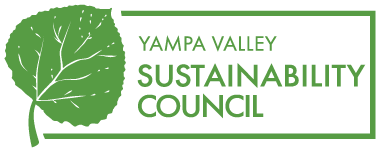JANUARY 23, 2014 BY
f you haven’t been following along in the YVSC Live Simply Challenge, read all about it here.
This post provided by Kristen Race, Ph.D., of Mindful Life
There are many ways that people can choose to live simply. Some choose to buy less, as Sara recommended in her blog post (link http://yvsc.org/live-simply-challenge-2/). Some choose to eat clean foods, or to expunge their possessions, or even refraining from all indulgences–of body and mind. While all of these actions are different paths on the road to simplicity, one of the easiest ways to start living simply that doesn’t require drastic life changes, is in expressing gratitude for what you already have. Gratitude is a word that gets thrown around easily in this new age world of yoga studios and meditation podcasts. But do we really know what it means?
The Oxford Dictionary defines gratitude as “readiness to show appreciation for and to return kindness.” But practicing gratitude has benefits that go beyond mere appreciation. Robert Emmons, author of Thanks!: How the New Science of Gratitude Can Make You Happier, Professor of Psychology at the University of California at Davis, has studied the effects of keeping a gratitude journal. He found that people who regularly keep a gratitude journal report fewer illness symptoms, feel more satisfied with their lives as a whole, and are more optimistic about the future.
According to Emmons, people who practice grateful thinking “reap emotional, physical and interpersonal benefits.” Studies also show that people who practice gratitude feel 25% happier, are more likely to be kind and helpful to others, are more enthusiastic, interested and determined, and even sleep better.
When you are more satisfied in life, you are less likely to be using “things” to make you happy. Expressing appreciation for all that you already have can help you to live a more simple, streamlined life.
So how can we practice gratitude in meaningful ways so that we learn how to feel satisfaction and pleasure in the present moment? Here are a few ideas.
- Express your appreciation for each other. In my house we started this as a birthday tradition. When it is someone’s birthday we go around the table and express what we all appreciate about that person. The first time we did this it was uncomfortable for me, it felt ‘cheesy’ for lack of a better term. But when I heard the amazing things my kids had to say it quickly became my favorite family ritual, and we remind each other of what has been said often.
- Acknowledge the small stuff. When we practice mindfulness it helps us to be present in our relationships and pay attention to our environment. Often it is easy to go through the day distracted, out of sync with our environment and the people around us. Be intentional about noticing beautiful flowers, a bright blue sky, the helpful person at the coffee counter, and the nice man who held the door for you.
- Make a gratitude jar. This can be a fun project if you have kids. Find a container and let the kids decorate it. Cut out some pieces of scratch paper and put them in a convenient place so that family members can write down things they feel grateful for and place the paper in the jar. If kids can’t yet write then having them draw a picture of something works great also! Then, open the jar once a week or once a month and read what everyone has written.
- Make it part of your bedtime routine. Take a few minutes at the end of each day to show appreciation for the little things in your life for which you are thankful. It is important to remember to be grateful for meaningful things like relationships, kindness, and the natural beauty in your environment (rather than your 60 inch plasma TV or your new ipad). This is a wonderful way to end each day!
Gratitude is just one of the many ways you can choose to simplify your life, but it’s one that anyone can do, and is totally free. Studies say it takes 21 days to create a habit. See if you can practice just one of these gratitude techniques for 21 days. Leave a comment in the blog and let us know if it has worked to change your outlook on life and created a happier, healthier, simpler you.
Kristen Race, Ph.D. is the author of Mindful Parenting and the founder of Mindful Life. She provides mindfulness trainings for parents, educators, athletes and corporate leaders. Dr. Race speaks nationally at conferences and for community groups. Her Mindful Life School methods is used in schools worldwide to provide teachers and students with brain-based mindfulness strategies to manage everyday stressors.






